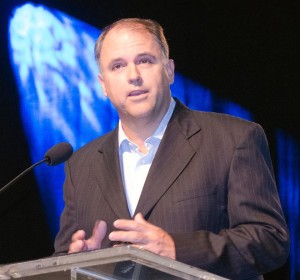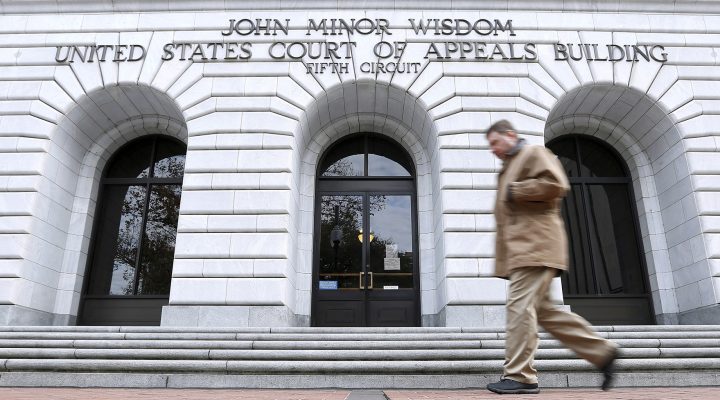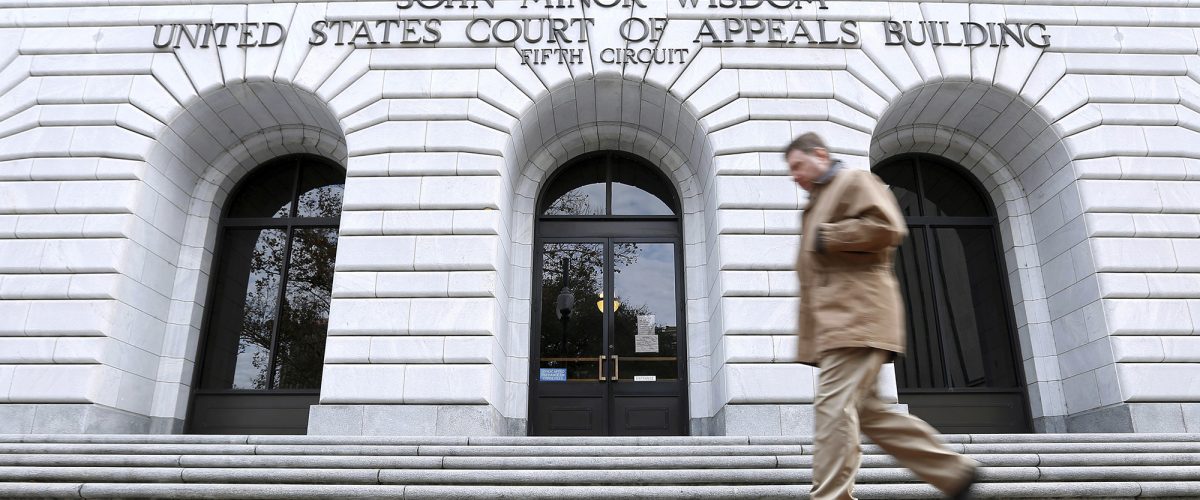Imagine a Jewish family taking their eight-day-old boy to a mohel for circumcision and discovering the Jewish official is drunk and maims the child’s genitals. Would the family be able to sue the mohel and others involved in facilitating the ritual circumcision? Or would the parents have no recourse because this is an internal religious matter?
That’s the hypothetical Will McRaney’s attorney put forward April 4 before the Fifth Circuit U.S. Court of Appeals in making the case that McRaney should be able to sue the Southern Baptist Convention North American Mission Board for defamation related to his firing as executive director of the Baptist Convention of Maryland and Delaware.
McRaney’s case has bounced through the court system for seven years, has been dismissed twice and reinstated once. Now, he and his attorneys hope to reinstate the case yet again in a reversal of a single judge’s ruling last fall.
What the case is about
At the heart of the case is whether secular courts may intervene in any matter related to the governance of a religious body. McRaney contends because he was not an employee of NAMB, he should be allowed to challenge NAMB leaders orchestrating his firing from the BCMD and then defaming him to other potential employers.

Will McRaney
NAMB contends it has full immunity from outside scrutiny of its alleged defamation and admitted role in securing McRaney’s firing because all this is shielded by something called the Ecclesial Abstention Doctrine.
McRaney counters if the courts let NAMB get off the hook for what happened to him, there will be no accountability for any ill-behaving religious body in America, including the hypothetical drunk mohel.
Religious groups and leaders have lined up on both sides of this much-watched case. Some, mostly institutions, argue in favor of NAMB’s view that all matters must be considered internal governance of the church — even if the “church” is an association of religious groups rather than a single “church.”
Others, mostly individuals, argue in favor of McRaney’s view that there must be limits to what is considered “internal governance” of a church or religious association.
Both sides agree the outcome of this case could set precedents for religious liberty claims in the future; they just see the threat coming from opposite directions.
‘Put an end to this’
NAMB’s attorney told the Firth Circuit he wants to make the whole thing go away and that no court should have given McRaney a hearing in the first place.
“What I would prefer is a ruling from this court that puts this to an end and doesn’t send us back to state court,” said NAMB attorney Matthew Martens, a graduate of Dallas Theological Seminary and a member of Capitol Hill Baptist Church in Washington, D.C.

Matthew Martens
Martens also warned that allowing McRaney’s case to move forward “could force religious organizations through extended litigation that is itself intrusive into the religious operations.”
As an example, he cited the legal discovery work already done in preparation for last fall’s trial that got called off.
“We were cross-examining a minister over his understanding of the Bible,” Martens said.
But McRaney’s attorney, Scott Gant, said those theological questions asked in depositions were for show and were not relevant to the case.
“Based on the fully developed record, Mr. Martens says, ‘Oh, I spent time deposing Dr. McRaney about the Bible.’ Well, I sat through that deposition. I defended it. It was completely irrelevant, and we know it was irrelevant because not one iota of it that I can recall ended up in the summary judgment briefing. It was an exercise in intellectual stimulation by Mr. Martens who has an advanced degree, and I think it’s theology, but I apologize if I’ve gotten it wrong. Mr. Martens is very smart and very interested in these issues, but that examination had nothing to do with the case. If you look at the actual allegations, this is a case about garden variety tortious conduct, and Dr. McRaney should be entitled to pursue his claims.”
This back-and-forth illustrates NAMB’s need to demonstrate the religious nature of the case before the court and McRaney’s need to portray his claim as not about religion but about “garden variety” defamation.
The 45-minute hearing offered spirited statements by both attorneys, as well as pointed questions from Chief Judge Priscilla Richman and Judge Andrew Oldham. The third judge hearing the case was Irma Carrillo Ramirez.
Two views of the case

Scott Gant
Gant told the court: “I contend that there are no ecclesiastical questions to be decided at all. … This is not an ecclesiastical dispute nor is it an internal church dispute or a ministry dispute.”
Martens told the court: “This dispute is fundamentally a ministry dispute. Will McRaney, a Christian minister and leader of a religious organization, is asking a civil court to adjudicate how two cooperating Baptist organizations interacted concerning his work as it related to those organizations’ joint ministry. That’s fundamentally the dispute here and, respectfully, civil courts have no say in a dispute of that sort.”
The legal precedent cited by Martens and NAMB is an 1871 U.S. Supreme Court case called Watson v. Jones that involved a dispute over the property of a Presbyterian church in Louisville, Ky.
There, the high court said civil courts may not adjudicate any matter “which concerns theological controversy, church discipline, ecclesiastical government, or the conformity of the members of the church to the standard of morals required of them.”
While NAMB and its attorney envision seemingly no situations of religious disputes that should not be considered internal governance off limits to the courts, McRaney and his attorney envision some situations where secular courts must not be kept away by a pretense of religious protection.
NAMB’s position is that even the act of deciding whether a dispute is ecclesial or not violates the First Amendment’s protection of religious liberty.
“You cannot decide whether someone was defamed with a statement that they breached a governance document without reaching a governance question,” Martens argued, adding that the governance document at play in McRaney’s dispute spoke of values including “biblical authority, kingdom advancement partnership evangelism and missions, mutual accountability, autonomy of individual Baptist entities.”
Answering the questions McRaney raises cannot be done “without answering a theological question,” Martens declared.
Gant countered that Martens and NAMB are “running away from” the facts of the original case.
“We have to look at the allegations. NAMB wants to do a broad brush. They want to say, ‘Ah, there’s a whiff of religion in the air. You cannot inquire.’ But that’s not what the courts are supposed to do. … To the extent that this is a jurisdictional exception or even a defense, it should be narrowly construed and done delicately just like it’s done with respect to speech claims because the court, all the people of the country, are entitled to constitutional protections.”
Related articles:
Oral arguments in McRaney’s appeal set for April 4
U.S. district judge dismisses McRaney’s case against NAMB
Seven years later, Will McRaney might get his day in court against NAMB — maybe
Key witness offers damning testimony against Ezell as NAMB gets McRaney trial delayed two months
McRaney warns dismissal of his case against NAMB raises urgent threat to Baptist autonomy
NAMB’s lies are worse than McLaurin’s, Will McRaney charges


